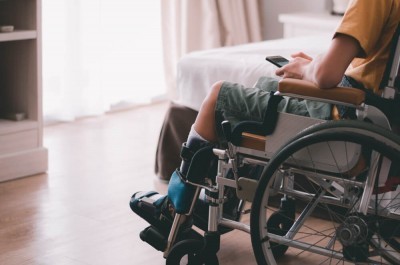Almost three in four Scots feel that society should learn from the coronavirus pandemic to become at least a little kinder.
That’s according to research carried out for the Mental Health Foundation, which is keen to emphasise the impact that simply being kinder to other people and to ourselves can have on our mental wellbeing.
The charity has organised Mental Health Awareness Week with those ideas in mind and wants to see ‘kindness tests’ relating to equality, dignity and respect applied to government policies where possible.
Most Scots agree that being kind to other people can have a positive impact on their own wellbeing and 74 per cent think the COVID-19 situation represents an opportunity for society to focus more attention on the issue of kindness.
“At one level, kindness can be as simple as phoning a friend who is lonely or thanking a colleague for something they have done,” says Lee Knifton, a Mental Health Foundation director in Scotland.
“However, to have a major impact on improving our mental health we need to take kindness seriously as a society. We need to make kindness an important part of public policy.”
Mental Health Awareness Week runs from May 18th until May 24th, with this being the event’s 20th year.
One issue known to have potentially a very damaging impact on people’s mental health is that of problem debt and more general money worries.
According to the Mental Health Foundation, almost a third (32 per cent) of Scots are currently worried about their finances, their debts and how they’re going to pay all their bills each month.
The charity says that a third of Scots in full time employment were worried about losing their jobs during the final week in April.
“Our research is starting to reveal how the financial and employment inequalities caused and exacerbated by the pandemic are affecting people’s mental health,” said Lee Knifton from the Mental Health Foundation.
“We have very concerning evidence that hundreds of thousands of people in Scotland are worrying about fundamental financial matters and their job security – both of which are closely linked to poor mental health.”
If you’re worried about how to deal with your personal debts then Scotland Debt Solutions can help. Contact us directly to arrange a FREE and confidential consultation.






